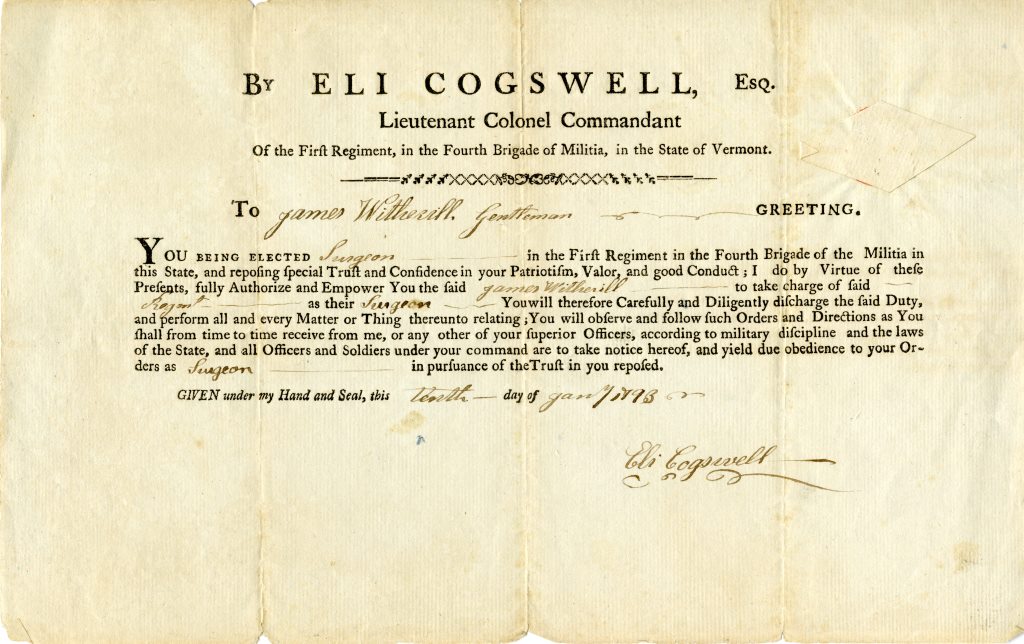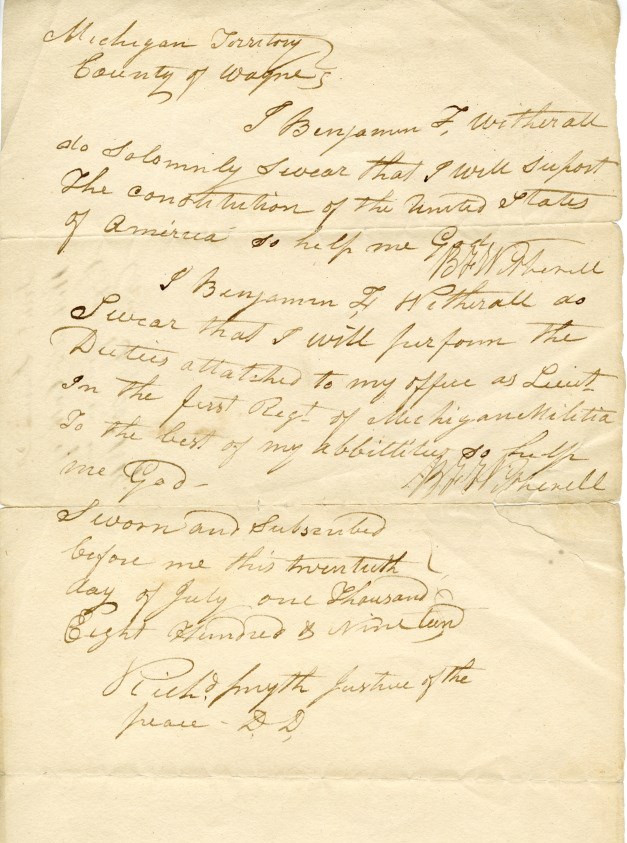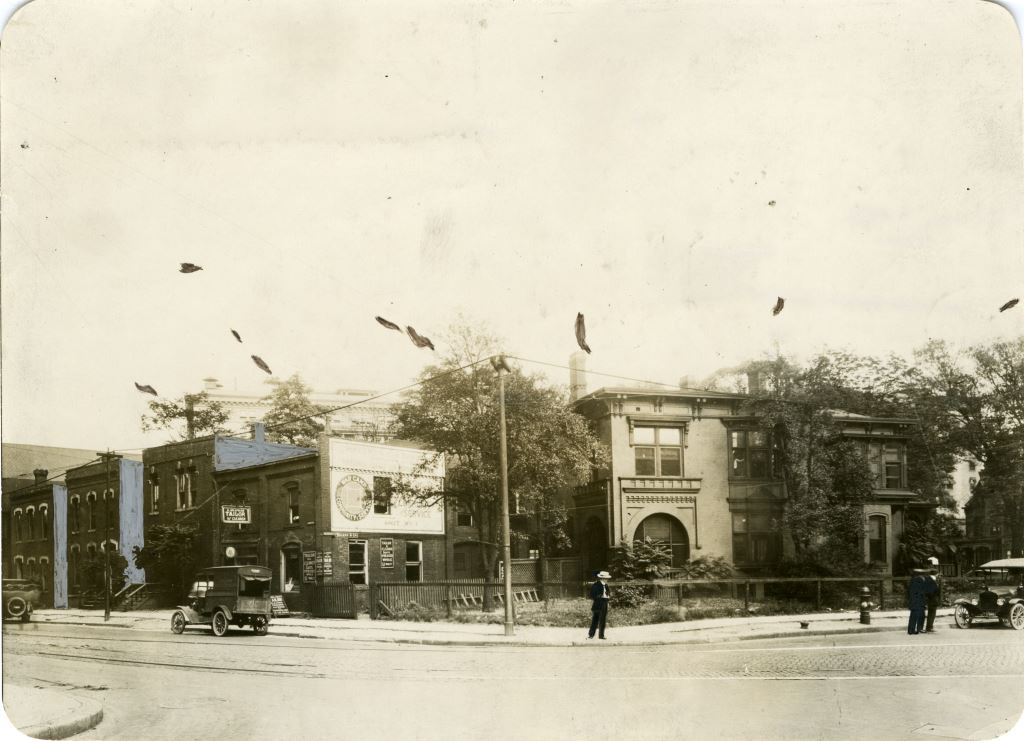Witherell Street: Exploring the History Behind the Name
While traversing the streets of Detroit, you may recognize some of the more prominent street names, such as Woodward, Lafayette, or Cass. All are familiar last names of historically significant people. However, many lesser-known streets in Detroit are also named after prominent Detroiters.
 This document shows James Witherell’s promotion to surgeon in the Militia of the State of Vermont in 1793.
This document shows James Witherell’s promotion to surgeon in the Militia of the State of Vermont in 1793.
One example is Witherell Street. You may have crossed this street while walking to see the Tigers at Comerica Park, since it curves around Grand Circus Park from Woodward Avenue and cuts straight in front of the main entrance to the ballpark. There were two Witherell family members that were involved in several important eras in Detroit and Michigan’s history. James W. Witherell, who became a Detroiter in 1808, had a very interesting past that led him to Detroit, where he put his life on the line for the city during the War of 1812.
 Benjamin F. Witherell's oath of office as Lieutenant of the 1st Regiment of the Michigan Militia, 1819.
Benjamin F. Witherell's oath of office as Lieutenant of the 1st Regiment of the Michigan Militia, 1819.
James was born in Mansfield, Massachusetts June 16, 1759. At sixteen he decided to enlist in the U.S. Army and he eventually ended up fighting in the Siege of Boston and the Battle of White Plains during the American Revolution. He also experienced the terrible winters at Valley Forge. It was said that his involvement in the horrors of war pushed him to become involved in the medical profession, which he began studying for in 1788. Years later, he became Dr. Witherell, a practicing professional in Rutland County, Vermont where he resided for many years. Life changed drastically for James in 1807, when he was elected into the U.S. House of Representatives. Shortly thereafter he resigned to accept an appointment from President Thomas Jefferson to become a Supreme Court Judge of Michigan Territory. Four years later, he became the Michigan Territory’s only Revolutionary Officer during the War of 1812, most likely due to his past military experience. James bravely defended the city of Detroit until its surrender to the English in August 1812. James refused to surrender himself and broke his sword in half rather than presenting it to the enemy. He was taken as a prisoner of war to Kingston, Ontario until hostilities ended, then he returned to Detroit. James served as Supreme Court Judge with Judge Augustus Woodward and John Griffin until 1825, when he resigned to become the Secretary of the Michigan Territory. After this appointment, he often served as Governor when Lewis Cass was absent. He died on January 9, 1838.
James Witherell’s son, Benjamin Franklin Hawkins Witherell (1797-1867) had his own important role in the history of Detroit. He was a prominent local lawyer, Judge of the Territory of Michigan, President of the Michigan State Historical Society, and historiographer for the city of Detroit. So, the next time you go to Comerica Park, Ford Field, or the Detroit Opera House and you pass Witherell Street, you know a bit about the history of the name and the important contributions that James Witherell, as well as his son Benjamin, made to the city of Detroit. - Timothy Borbely, Wayne State University Graduate Student


